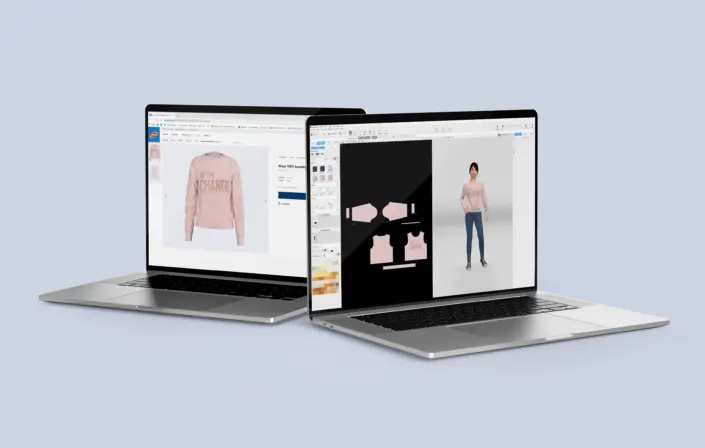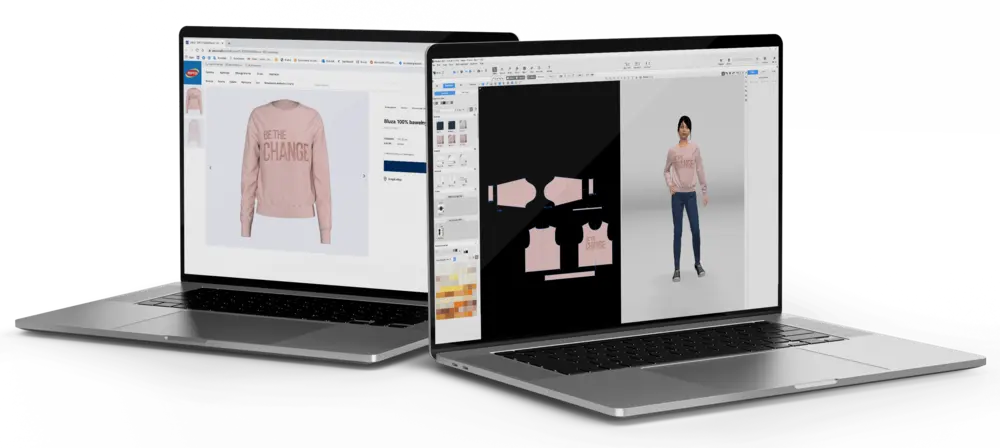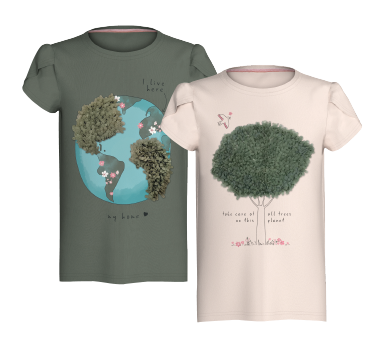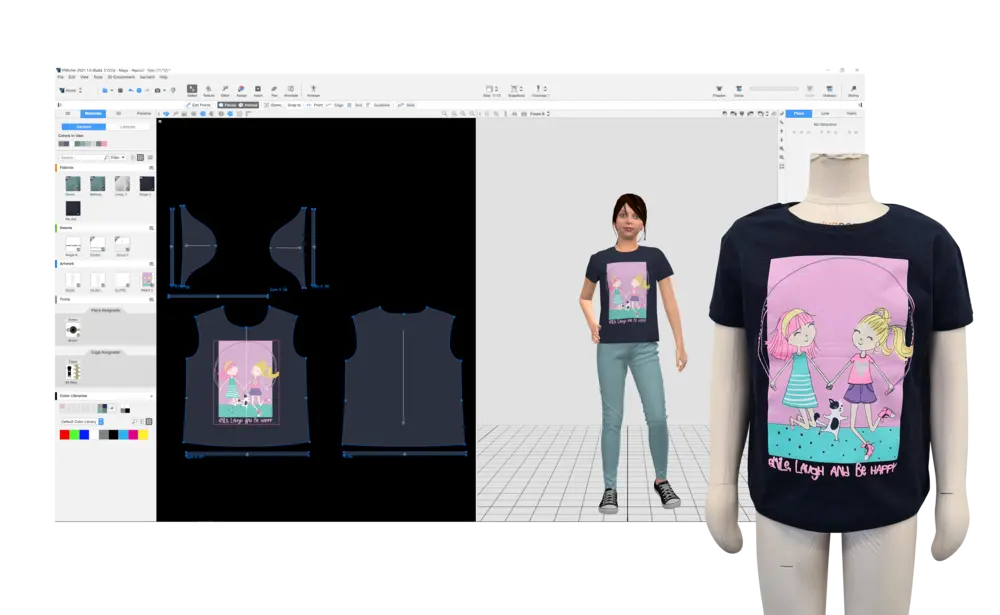Zhuri Textile Achieves 40% Faster Cycles, 25% Cost Savings
Discover how Jiangsu Zhuri Textile cuts costs, shortens cycles, and drives sustainable growth with Browzwear’s digital product development.

 About the Company
About the CompanyPEPCO is a leading European retailer, with over 2,000 stores across 13 countries, servicing 20 million customers every month. Since its establishment in 1999, the company has consistently grown and is known today as one of the most well-known sellers of children’s clothing and a leading supplier of decorative products. As an award-winning retailer for brand and quality, PEPCO prides itself in taking a customer-first approach, ensuring that all of its products are developed following its market’s needs and expectations.
Being a company that caters to such a wide audience as well as producing a broad scope of products and one that vaws to efficiency and sustainability. Pepco has always looked for ways to reduce production waste and build quality-forward processes. Just over five years ago, PEPCO began to search for new ways to accelerate often time-consuming and resource-intensive processes to make them more efficient and less wasteful. When looking at different solutions, the company saw 3D as the key to reducing physical samples, cutting down lengthy garment approval cycles, and streamlining complex fit processes. It was in 2017 that PEPCO joined forces with Browzwear and embarked on its digital transformation journey.
When PEPCO began its digital adoption process, one of the main starting points was ensuring that the suppliers were onboard with 3D and had all the right tools in place. That way, they would be able to effectively work with 3D patterns and tech packs to create a faster and more efficient workflow. “When adopting a new, 3D solution, it’s essential that everyone is kept aligned and are on the same page. Through a combination of on-site and online training, we quickly began to familiarize ourselves with all of the processes involved, ” says Karolina Hennig, 2D CAD and 3D Virtual sampling Manager, PEPCO. Since starting their journey, the buying team, the design teams, pattern makers, and suppliers could fully onboard to 3D, build the correct methods, and adapt to the workflows and processes involved. “ Our strategy for 3D implementation was to go one step at a time and gradually spread it across all departments,” says Karolina. Given that several of PEPCO’s teams and sourcing offices are spread worldwide, by adopting a digital solution, the company would ultimately be able to reduce the need for frequent overseas travel, improve communication between departments, and effectively speed-up sampling processes.

3D is continuously evolving at PEPCO, and it has been widely adopted across departments, from ideation to manufacturing and selling. “When deciding on the initial design concept for a garment, the possibilities offered by 3D are endless. We can experiment freely with different patterns, colors, and artwork without being limited to physical resources. Therefore we can make more informed decisions before moving to the next stage ,” says Karolina. By leveraging digital tools, buyers and suppliers can enjoy seamless collaboration as any changes can be effectively communicated over the digital sample and made within a matter of seconds, minimizing physical sample iterations. When focusing on the designers and pattern makers, in particular, they are able to make the most out of 3D when it comes to fitting and artwork approval, using 3D as a grading tool for virtual fittings. However, over the past three years, it has been welcomed by even more departments.
Whereas the initial 3D adoption phase focused on the buying and supply side, the company has begun gearing up to incorporate it into marketing over the last year, starting by showcasing virtual garments in digital catalogs. “The marketing team was welcoming to the concept of 3D as they saw a great need to reduce time and the amount of physical samples that were needed for each photoshoot, ” says Karolina. “Although people may be hesitant to change at first in regards to implementing a new tool, once the results are visible, it is hard to turn back as the opportunities posed by it are endless .”

“After two years of working with 3D, when we started to measure the number of samples that were reduced by moving to digital processes, we saw a 40% reduction in the children’s department, ” says Karolina. Being one of the most complex departments from a design perspective, working with Browzwear’s 3D software VStitcher and Lotta allowed the patternmaking and graphics design teams to quickly and easily refresh the shapes, prints, colors, and artwork on the clothing to meet the needs of the customer each season. “The clothing in the children’s department is extremely detailed, involving complex grading and shapes. With 3D, we are able to clearly visualize each and every detail on the garment before it is sent to production,” says Karolina. In addition, she notes that “ Working with 3D has also reduced the need to frequently travel overseas to verify the patterns with the suppliers, now that our suppliers are on board, everything can be communicated quickly, clearly, and virtually . The buying team has built trust in 3D, knowing that whatever works or doesn’t work on the virtual garment will be reflected on the physical.”
When it comes to future planning, doubling down on 3D is undoubtedly on the cards for PEPCO. Solidifying and improving the current processes, expanding the usage of 3D across departments, and carrying it forward to the website are all priorities for the company in the coming year. Additionally, the marketing team is eager to bring 3D to the consumer front and utilize virtual garments for eCommerce selling, which they have already begun to experiment with. “Futurewise, we want to be able to continue reducing the number of physical garments annually until they are no longer needed. To make this possible, we plan to utilize more and more virtual garments and software plugins for showcasing and selling to make this possible, ” says Karolina. “ We hope that in the near future that we can give our customers the ability to leverage digital tools to enhance their online shopping experience, with concepts such as virtual fittings ,” Karolina adds.


40% sample reduction in the Children’s Department

Production cycle reduced by 1-2 months

Shorter lead time & faster approval processes

Enhanced communication between overseas teams
“After two years of working with 3D, when we started to measure the number of samples that were reduced by moving to digital processes, we saw a 40% reduction in the children’s department. “

Discover how Jiangsu Zhuri Textile cuts costs, shortens cycles, and drives sustainable growth with Browzwear’s digital product development.
Discover the remarkable achievements of bonprix, the renowned global fashion powerhouse, on its digital transformation journey.
Discover how Top Form reduced samples by 30% and cut development time by 25% using Browzwear’s 3D apparel design software. Learn how digital product...